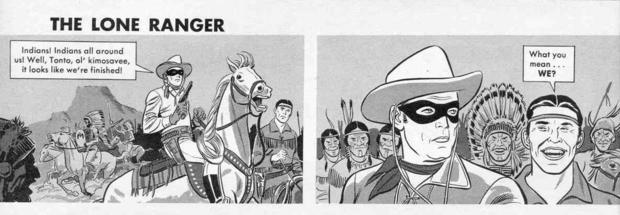John Eidsmoe is a Christian theologian. So just like trying to prove that the earth is only 13,000 years old, Eidsmoe is going to use his legal cunning to twist into reality that God is a statute in American law. This entire thing is yet another attempt to subvert the 1st Amendment of the Constitution. Therefore it is dismissed out of hand.
and your point is?
the man is correct, the declaration of independence is used in enabling acts.
Enabling Act
AN ACT to provide for the division of Dakota into two States and to enable the people of North Dakota, South Dakota, Montana, and Washington to form constitutions and State governments and to be admitted into the Union on an equal footing with the original States, and to make donations of public lands to such States.
(Approved February 22, 1889.) [25 U.S. Statutes at Large, c 180 p 676.]
[President's proclamation declaring Washington a state: 26 St. at Large, Proclamations, p 10, Nov. 11, 1889.]
Be it enacted by the Senate and House of Representatives of the United States of America in Congress assembled, That the inhabitants of all that part of the area of the United States now constituting the Territories of Dakota, Montana, and Washington, as at present described, may become the States of North Dakota, South Dakota, Montana, and Washington, respectively, as hereinafter provided.
SEC. 2. The area comprising the Territory of Dakota shall, for the purposes of this act, be divided on the line of the seventh standard parallel produced due west to the western boundary of said Territory; and the delegates elected as hereinafter provided to the constitutional convention in districts north of said parallel shall assemble in convention, at the time prescribed in this act, at the city of Bismarck; and the delegates elected in districts south of said parallel shall, at the same time, assemble in convention at the city of Sioux Falls.
SEC. 3. That all persons who are qualified by the laws of said Territories to vote for representatives to the legislative assemblies thereof, are hereby authorized to vote for and choose delegates to form conventions in said proposed States; and the qualifications for delegates to such conventions shall be such as by the laws of said Territories respectively persons are required to possess to be eligible to the legislative assemblies thereof; and the aforesaid delegates to form said conventions shall be apportioned within the limits of the proposed States, in such districts as may be established as herein provided, in proportion to the population in each of said counties and districts, as near as may be, to be ascertained at the time of making said apportionments by the persons hereinafter authorized to make the same, from the best information obtainable, in each of which districts three delegates shall be elected, but no elector shall vote for more than two persons for delegates to such conventions; that said apportionments shall be made by the governor, the chief-justice, and the secretary of said Territories; and the governors of said Territories shall, by proclamation, order an election of the delegates aforesaid in each of said proposed States, to be held on the Tuesday after the second Monday in May, eighteen hundred and eighty-nine, which proclamation shall be issued on the fifteenth day of April, eighteen hundred and eighty-nine; and such election shall be conducted, the returns made, the result ascertained, and the certificates to persons elected to such convention issued in the same manner as is prescribed by the laws of the said Territories regulating elections therein for Delegates to Congress; and the number of votes cast for delegates in each precinct shall also be returned. The number of delegates to said conventions respectively shall be seventy-five; and all persons resident in said proposed States, who are qualified voters of said Territories as herein provided, shall be entitled to vote upon the election of delegates, and under such rules and regulations as said conventions may prescribe, not in conflict with this act, upon the ratification or rejection of the constitutions.
SEC. 4. That the delegates to the conventions elected as provided for in this act shall meet at the seat of government of each of said Territories, except the delegates elected in South Dakota, who shall meet at the city of Sioux Falls, on the fourth day of July, eighteen hundred and eighty-nine, and, after organization, shall declare, on behalf of the people of said proposed States, that they adopt the Constitution of the United States; whereupon the said conventions shall be, and are hereby, authorized to form constitutions and States governments for said proposed states, respectively. The constitutions shall be republican in form, and make no distinction in civil or political rights on account of race or color, except as to Indians not taxed, and not be repugnant to the Constitution of the United States and the
principles of the Declaration of Independence. And said conventions shall provide, by ordinances irrevocable without the consent of the United States and the people of said States:
First. That perfect toleration of religious sentiment shall be secured and that no inhabitant of said States shall ever be molested in person or property on account of his or her mode of religious worship

